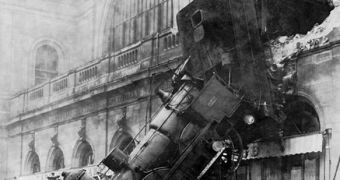Scientists have determined that people who believe they can learn from a mistake they've just made exhibit a different neural activation pattern in their brains than individuals who believe that no new knowledge can be extracted from current occurrences.
The former group is capable of recovering from mistakes a lot faster and tends to become more adapted to their situations. On the other hand, individuals in the latter group prefer to believe that intelligence is fixed, and that it cannot be improved with time.
In a new paper published in the latest issue of the esteemed journal Psychological Science, scientists take a closer look at how the brains of people in each group respond to making a mistake. The research was conducted by experts at the Michigan State University (MSU).
The work was led by professor Jason S. Moser. His team also included MSU scientists Hans S. Schroder, Carrie Heeter, Tim P. Moran, and Yu-Hao Lee, PsychCentral reports. Their study was edited by the Association for Psychological Science (APS).
“One big difference between people who think intelligence is malleable and those who think intelligence is fixed is how they respond to mistakes,” Moser explains, referring to the study topic.
In order to understand how the brain functions when it makes a mistake, one must consider the signals it generates. There are almost always two of them – one that indicates the error proper, and another one that makes the person conscious that something went wrong.
In the new study, participants were asked to complete tasks in which errors could be easily made. While they solved their assignments, they wore measuring devices on their heads that gaged the electrical activity patterns activating in their brains.
MSU researchers learned that the two, aforementioned signals tend to exhibit different strengths in people who believed intelligence is malleable than in the other group. In time, test subjects in the former group became more capable of detecting errors early on, and then avoided them more efficiently.
“It’s pretty simple, doing the same thing over and over, but the mind can’t help it; it just kind of zones out from time to time. This might help us understand why exactly the two types of individuals show different behaviors after mistakes,” Moser explains.

 14 DAY TRIAL //
14 DAY TRIAL //